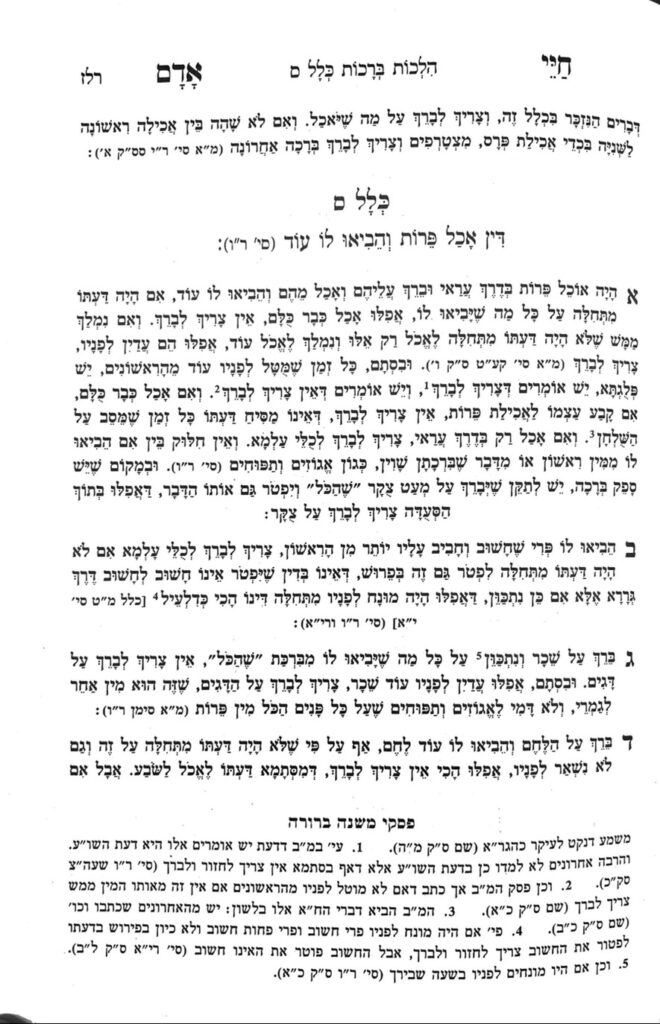We are continuing in siman 1. The Chayei Adam continues discussing the halachos of extending one’s bracha when they had stam daas at the time they made the bracha.
In a case of stam daas, even if all of the fruits on the table were eaten and others were subsequently brought out, the Chayei Adam writes that if the scenario was that he sat down to a formal meal of fruit, then, as long as he is still at the table, the eating session is still in effect, and no new bracha is needed. This psak is the chiddush of the Chayei Adam, and the Mishnah Berurah paskens accordingly.
However, the Chayei Adam agrees that if one was not eating in a manner which demonstrates k’vius but rather ate b’derech arai they would need to make a new bracha should they wish to eat more.
The Chayei Adam adds that in a case where one eats b’derech arai, one must make a new bracha both when the new fruits were the same as the original fruits and when they are different from the original fruits. However, the Mishnah Berurah points out that many achronim, most notably the Rama, hold this situation is a machlokes. The Rama’s understanding of the Shulchan Aruch is that in a case of stam daas, if one is eating b’derech arai and finishes all the fruit currently in front of him, one does not need to make a new bracha.
Practically, we only rely on the Shulchan Aruch that one does not make a new bracha when the fruit brought out is the same fruit as the fruit upon which the bracha was made. If a different fruit is brought out, we pasken that one would make a new bracha.
Chayei Adam writes that if one is unsure of their original daas, preferably, they should make a bracha on a fruit upon which they are certain they did not have daas. If they do not have such a fruit available, they should make a bracha on a shehakol, such as sugar, and have in mind that it should cover the fruit, because, bedieved, if one made a shehakol on fruit they would be yotzei. The Chayei Adam adds that even if this situation were to occur in the middle of a bread meal, they could make a bracha on sugar, because it is not part of the bread meal, but akin to dessert.
Summary
- In a case of stam daas, if one demonstrates that they are eating in a settled manner, they are eating in a manner of kvius, and will not make a second bracha on new fruits brought out, even if the first fruits were all finished.
- In a case of stam daas, if one eats b’derech arai and finishes all the fruit on the table, they are only exempt from a new bracha if the new fruits brought out are the same type of fruit as the original fruit upon which one made their bracha. Otherwise, they will make a new bracha. (Although the Chayei Adam held differently, this is the accepted halacha.)
- If one is unsure of their original daas, they should make a bracha on a fruit upon which they are certain they did not have daas.
- If they do not have such a fruit, they can make a shehakol on a shehakol item, and exempt bedieved the need to make a haeitz on the fruit, since shehakol covers all foods bedieved.



